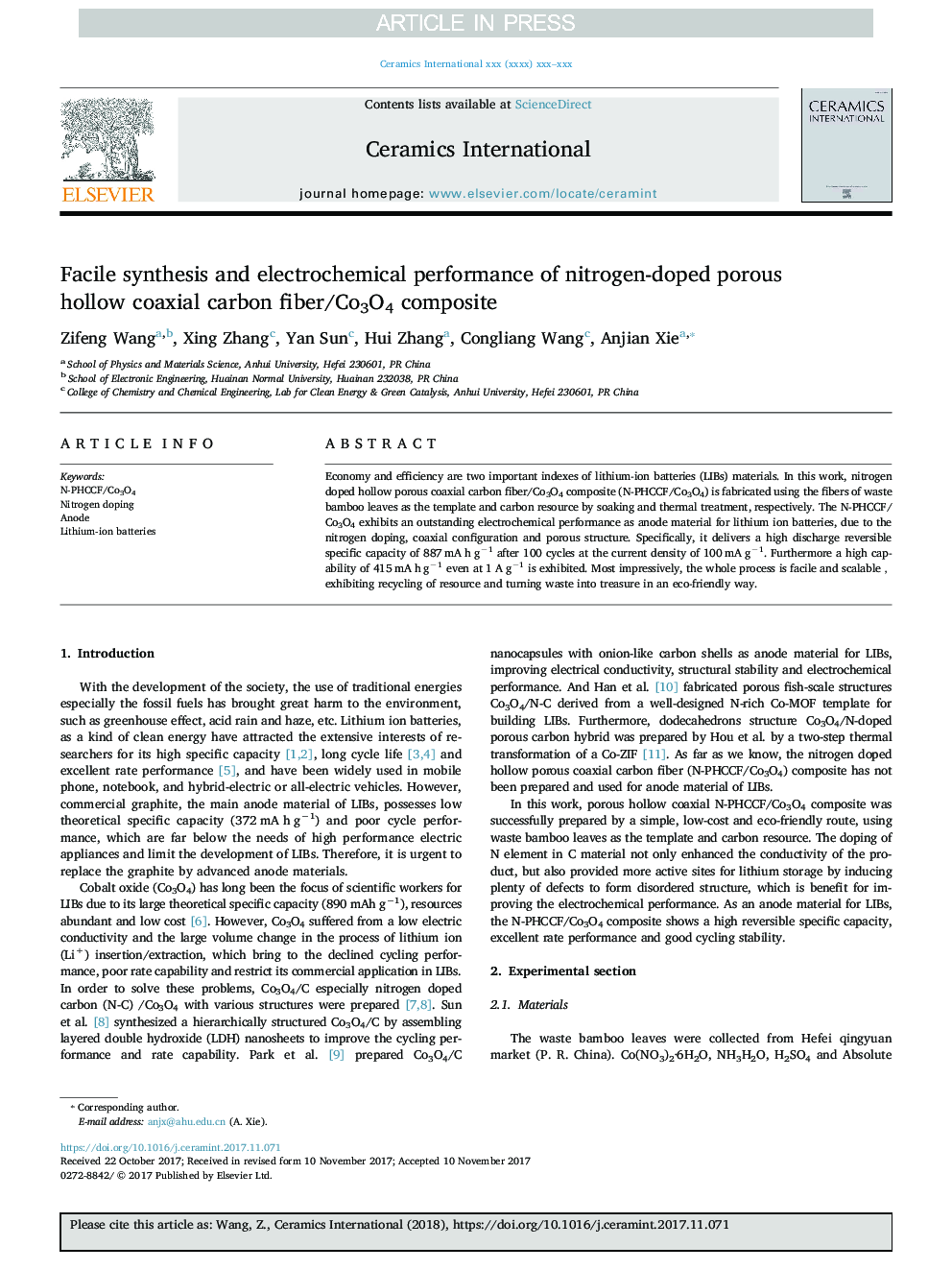| Article ID | Journal | Published Year | Pages | File Type |
|---|---|---|---|---|
| 7887410 | Ceramics International | 2018 | 7 Pages |
Abstract
Economy and efficiency are two important indexes of lithium-ion batteries (LIBs) materials. In this work, nitrogen doped hollow porous coaxial carbon fiber/Co3O4 composite (N-PHCCF/Co3O4) is fabricated using the fibers of waste bamboo leaves as the template and carbon resource by soaking and thermal treatment, respectively. The N-PHCCF/Co3O4 exhibits an outstanding electrochemical performance as anode material for lithium ion batteries, due to the nitrogen doping, coaxial configuration and porous structure. Specifically, it delivers a high discharge reversible specific capacity of 887 mA h gâ1 after 100 cycles at the current density of 100 mA gâ1. Furthermore a high capability of 415 mA h gâ1 even at 1 A gâ1 is exhibited. Most impressively, the whole process is facile and scalableï¼exhibiting recycling of resource and turning waste into treasure in an eco-friendly way.
Related Topics
Physical Sciences and Engineering
Materials Science
Ceramics and Composites
Authors
Zifeng Wang, Xing Zhang, Yan Sun, Hui Zhang, Congliang Wang, Anjian Xie,
